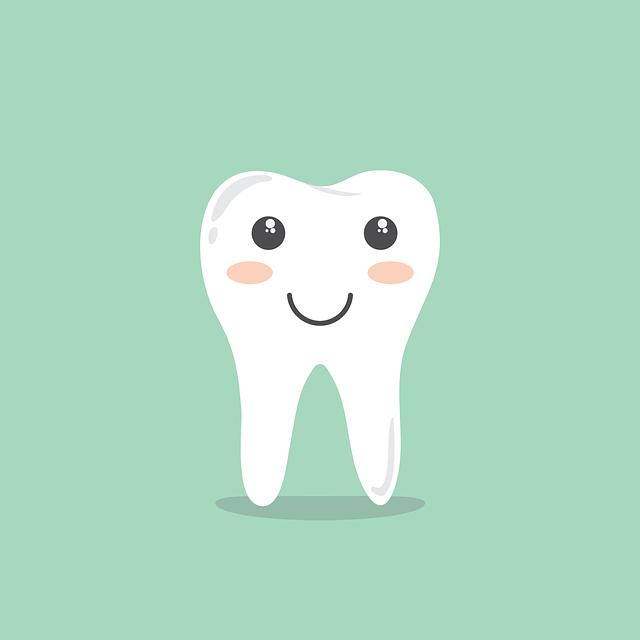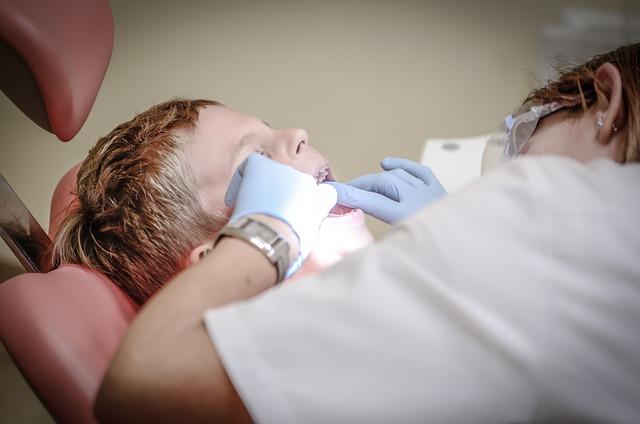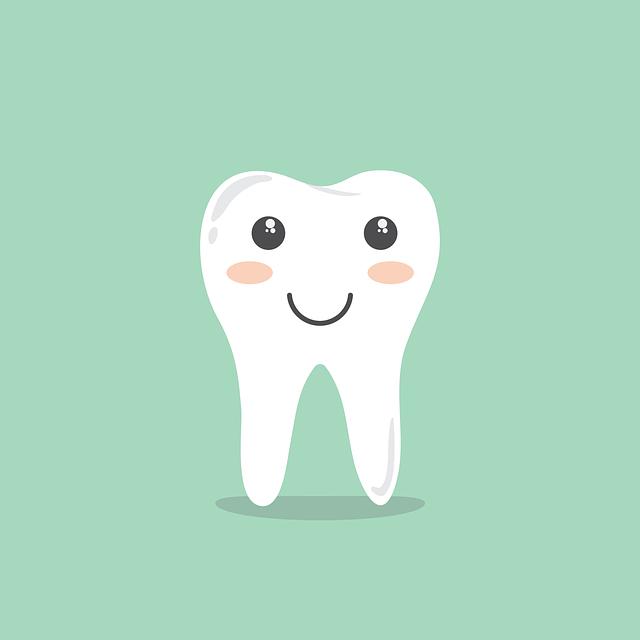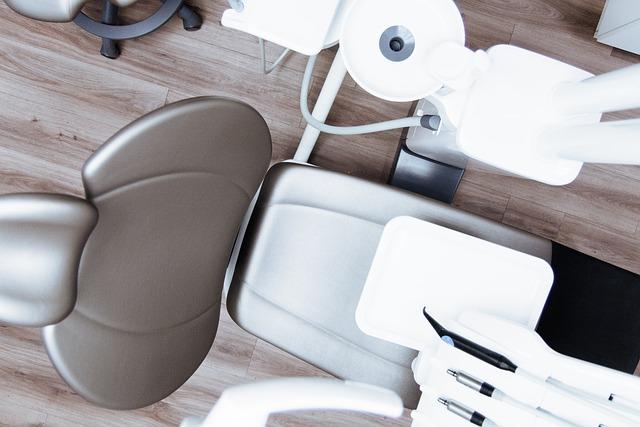Should I Brush My Teeth After Gargling Salt Water? Dental Tips
Taking care of our oral hygiene is essential for maintaining a healthy smile and preventing dental problems down the line. While brushing and flossing are the go-to methods for most of us, there may be times when we need to explore alternative techniques. One such technique that often comes up in conversations is gargling salt water. The question then arises: should we brush our teeth after gargling salt water? In this article, we will delve into this topic, providing you with dental tips that will help you make an informed decision. So, let’s dive in and uncover the truth behind this common dental dilemma.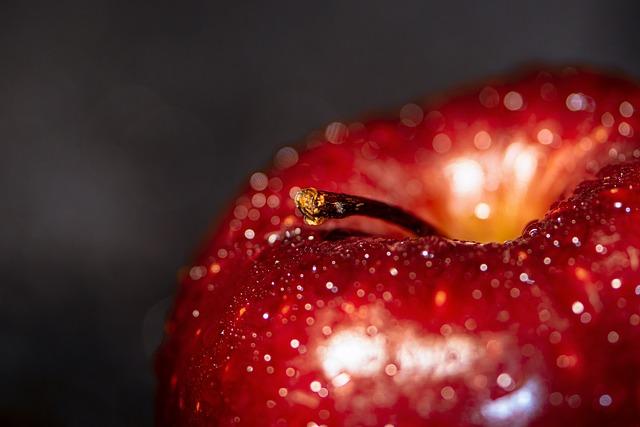
1. The Benefits of Gargling Salt Water: A Closer Look at Dental Hygiene
When it comes to dental hygiene, there is a simple and effective practice that often goes overlooked: gargling salt water. Not only is this a cost-effective and natural solution, but it also provides numerous benefits for your oral health. Let’s take a closer look at what makes gargling salt water so beneficial:
- Kills bacteria: Salt water has natural antiseptic properties that help kill harmful bacteria in your mouth. When you gargle salt water, it reaches areas that brushing and flossing may miss, reducing the risk of gum disease and tooth decay.
- Reduces inflammation: If you have a sore throat or swollen gums, gargling salt water can help reduce inflammation and provide relief. The salt helps draw out excess fluid and reduces swelling, soothing any discomfort you may be experiencing.
- Promotes healing: Salt water can aid in healing oral wounds, such as canker sores or mouth ulcers. It creates an environment that is less favorable for bacteria to thrive, allowing the healing process to occur more quickly.
So, the next time you’re looking for a natural and effective way to enhance your dental hygiene routine, give gargling salt water a try. Incorporating this simple practice into your daily routine can have a significant impact on your oral health and overall well-being.

2. Understanding the Role of Salt Water Gargling in Oral Health
When it comes to maintaining good oral health, one practice that has been gaining popularity is salt water gargling. This simple yet effective technique can provide numerous benefits for your mouth and overall dental hygiene.
So, what exactly is the role of salt water gargling in oral health? Let’s explore:
- Reducing inflammation: Gargling with salt water can help reduce inflammation in the gums and throat. The salt acts as a natural disinfectant, helping to kill bacteria and reduce swelling, which can alleviate discomfort and promote healing.
- Preventing infection: Salt water has antiseptic properties that can help prevent bacterial and viral infections in the mouth. Gargling with salt water can help kill harmful bacteria and viruses, reducing the risk of developing oral infections such as gingivitis or throat infections.
- Relieving sore throat: Salt water gargling can provide temporary relief for a sore throat. The warm saline solution can help soothe the throat by reducing inflammation and removing mucus or irritants.
- Enhancing oral hygiene: Incorporating salt water gargling into your oral hygiene routine can complement regular brushing and flossing. It can reach areas of the mouth that may be difficult to clean with a toothbrush, helping to dislodge food particles and debris.
Remember, while salt water gargling offers several benefits, it should not replace regular dental care or treatment prescribed by your dentist. If you have any specific oral health concerns, it’s always best to consult with a dental professional for personalized advice.

3. Exploring the Effects of Gargling Salt Water on Tooth Brushing
Gargling salt water is a common practice that many people incorporate into their oral hygiene routine. It is believed to have various effects on tooth brushing and overall dental health. Here are some key points to consider when exploring the effects of gargling salt water:
- Reduces inflammation: Salt water has natural anti-inflammatory properties that can help reduce swelling and inflammation in the gums. This can be particularly beneficial for individuals with gum disease or those prone to gum sensitivity.
- Kills bacteria: Salt water has antimicrobial properties that can help kill bacteria and prevent the growth of harmful microorganisms in the mouth. This can contribute to maintaining a healthier oral environment and reducing the risk of dental infections.
- Enhances healing: Gargling salt water can promote faster healing of minor mouth irritations, such as canker sores or post-tooth extraction wounds. The salt solution helps cleanse the area and reduces the risk of infection, allowing the body to heal more efficiently.
While gargling salt water can provide these benefits, it is important to note that it should not replace regular tooth brushing and flossing. Salt water rinses should be used as a complementary addition to a thorough oral hygiene routine. If you have any concerns or specific dental conditions, it is always recommended to consult with a dentist for personalized advice.
4. Debunking Common Myths: Should You Brush Your Teeth After Gargling Salt Water?
Gargling salt water is a common home remedy for various oral health issues, such as sore throat, gum inflammation, and bad breath. However, there is a common myth that you should brush your teeth immediately after gargling with salt water. Let’s debunk this myth and explore the facts.
Contrary to popular belief, it is not necessary to brush your teeth immediately after gargling salt water. In fact, brushing your teeth right after can have some negative effects on your oral health. Here’s why:
- Enamel erosion: Gargling salt water can have a mild abrasive effect, which can temporarily weaken the enamel. Brushing your teeth immediately after can further damage the enamel, leading to tooth sensitivity and increased vulnerability to cavities.
- Saliva production: Salt water gargles promote saliva production, which helps in neutralizing acids and maintaining a healthy pH balance in your mouth. Brushing your teeth right after can wash away the saliva, hindering its natural protective effects.
- Gum irritation: Salt water gargles can help reduce gum inflammation and swelling. However, vigorous brushing immediately after can cause further irritation and damage to your gums.
Instead of brushing right after gargling salt water, it is recommended to wait for at least 30 minutes. This allows your saliva to remineralize and protect your teeth. Additionally, it’s important to use a soft-bristled toothbrush and a fluoride toothpaste to minimize enamel damage and maintain good oral hygiene.
5. Expert Advice: The Ideal Dental Care Routine after Gargling Salt Water
After gargling salt water, it is important to follow a proper dental care routine to maintain optimal oral health. Here are some expert tips to help you establish an effective post-gargling dental care routine:
- Brush your teeth: Use a soft-bristled toothbrush and fluoride toothpaste to gently brush your teeth for two minutes. Be sure to cover all surfaces, including the front, back, and chewing surfaces of your teeth. Brushing after gargling salt water helps remove any remaining debris and bacteria, leaving your mouth feeling fresh and clean.
- Floss daily: Regular flossing is crucial to remove plaque and food particles that might be stuck between your teeth. Take a piece of dental floss and carefully clean between each tooth, making sure to reach the gum line. This helps prevent gum disease and keeps your oral hygiene in check.
- Rinse with mouthwash: After brushing and flossing, rinse your mouth with an antimicrobial mouthwash. This further reduces bacteria and helps freshen your breath. Look for a mouthwash that contains fluoride to strengthen your teeth and prevent cavities.
- Maintain a healthy diet: A balanced diet plays a significant role in overall oral health. Limit your intake of sugary and acidic foods, as they can erode tooth enamel. Instead, opt for a diet rich in fruits, vegetables, lean proteins, and dairy products to provide essential nutrients for strong teeth and gums.
- Visit your dentist regularly: Even with a diligent dental care routine at home, it is essential to schedule regular check-ups with your dentist. They can identify any potential issues and provide professional cleaning to keep your teeth and gums in optimal condition.
Following these expert recommendations will help you maintain a healthy smile and ensure your oral hygiene remains at its best after gargling salt water.
6. Maximizing the Benefits: Best Practices for Maintaining Oral Hygiene
Maintaining good oral hygiene is crucial for overall health and well-being. By following these best practices, you can maximize the benefits of oral hygiene and ensure a healthy smile for years to come.
1. Brushing Technique:
– Use a soft-bristled toothbrush and fluoride toothpaste.
– Hold the brush at a 45-degree angle and brush in circular motions.
– Clean all tooth surfaces, including the inner and outer surfaces, as well as the chewing surfaces.
– Don’t forget to brush your tongue to remove bacteria and freshen your breath.
2. Flossing:
– Use a piece of dental floss about 18 inches long.
– Gently slide the floss between your teeth, moving it up and down.
– Curve the floss around each tooth to reach below the gumline.
– Don’t rush and be sure to floss every day to remove plaque and prevent gum disease.
3. Mouthwash and Additional Tools:
– Rinse your mouth with an antimicrobial mouthwash to kill bacteria and freshen your breath.
– Consider using interdental brushes or water flossers for hard-to-reach areas.
– Replace your toothbrush every three to four months or when the bristles become frayed.
– Visit your dentist regularly for professional cleanings and check-ups.
Remember, maintaining good oral hygiene is not only about having a beautiful smile but also about preventing dental issues such as cavities, gum disease, and bad breath. By following these best practices, you can ensure optimal oral health and enjoy the benefits of a healthy mouth.
7. The Dos and Don’ts of Brushing Your Teeth after Gargling Salt Water
Proper oral hygiene is essential for maintaining healthy teeth and gums. If you’ve recently gargled salt water, there are a few important dos and don’ts to keep in mind when it comes to brushing your teeth afterwards. Following these guidelines will help ensure the best results and protect your dental health.
Do:
- Wait for at least 30 minutes after gargling salt water before brushing your teeth. This allows the salt water to have its desired effect on the oral cavity.
- Use a soft-bristled toothbrush to gently clean your teeth and gums. Applying too much pressure can lead to gum recession and enamel erosion.
- Brush all surfaces of your teeth, including the front, back, and chewing surfaces. Pay close attention to the gumline, where plaque tends to accumulate.
- Rinse your mouth thoroughly with water after brushing to remove any remaining salt water or toothpaste residue.
Don’t:
- Brush your teeth immediately after gargling salt water, as this can spread the saltwater solution around your mouth, potentially causing an imbalance in the oral pH level.
- Overuse salt water gargles. While it can be beneficial for temporary relief of certain oral issues, excessive use may lead to dry mouth and irritation.
- Forget to maintain a regular oral hygiene routine. Gargling salt water is not a substitute for brushing and flossing daily, along with regular dental check-ups.
By following these dos and don’ts, you can effectively incorporate salt water gargles into your oral care routine without compromising your dental health. Remember, consistency and proper technique are key to maintaining a beautiful and healthy smile.
8. Optimal Timing: When to Brush Your Teeth After Gargling Salt Water
When it comes to maintaining good oral hygiene, the timing of your dental care routine plays a crucial role. After gargling with salt water, it’s important to brush your teeth at the optimal time to maximize the benefits. Here’s everything you need to know:
1. Wait for at least 30 minutes: After gargling with salt water, it’s recommended to wait for at least 30 minutes before brushing your teeth. This allows the salt water to have its desired effect on your oral health without interference.
2. Avoid brushing immediately: Brushing your teeth immediately after gargling salt water may wash away the beneficial effects of the salt water, such as reducing inflammation and killing bacteria. Waiting for the recommended time ensures that you make the most of both the salt water gargle and brushing your teeth.
3. Brush gently and thoroughly: When the time comes to brush your teeth after gargling salt water, remember to brush gently and thoroughly. Use a soft-bristled toothbrush and fluoride toothpaste, focusing on each tooth’s front, back, and chewing surfaces. Don’t forget to brush your tongue and gums as well for a comprehensive clean.
By following these simple guidelines, you can effectively incorporate gargling salt water into your oral care routine and maintain optimal dental health.
9. Navigating Dental Care: Finding the Balance between Salt Water Gargling and Brushing
When it comes to taking care of your dental health, finding the right balance between salt water gargling and brushing is crucial. Both methods offer unique benefits and play a significant role in maintaining good oral hygiene. Here’s a breakdown of what you need to know:
Brushing:
- Brushing your teeth at least twice a day is essential for removing plaque, food particles, and preventing tooth decay.
- Use a soft-bristled toothbrush and fluoride toothpaste to gently clean your teeth and gums.
- Don’t forget to brush your tongue as well to remove bacteria and freshen your breath.
- Remember to replace your toothbrush every three to four months or when the bristles become frayed.
Salt water gargling:
- Gargling with salt water helps to maintain a healthy oral environment and soothes minor mouth irritations.
- Dissolve half a teaspoon of salt in warm water and swish it around your mouth for about 30 seconds before spitting it out.
- This method can help reduce inflammation, alleviate sore throats, and promote healing after dental procedures.
- However, it should not replace regular brushing and should be used as a complementary practice.
By incorporating both brushing and salt water gargling into your dental care routine, you can achieve a balanced approach to oral health. Remember to consult with your dentist for personalized advice and recommendations based on your specific needs and conditions.
10. Concluding Thoughts: The Importance of Salt Water Gargling in Dental Hygiene
Gargling with salt water is a simple yet effective practice that holds great significance in maintaining good dental hygiene. Incorporating this easy and accessible method into your oral care routine can provide numerous benefits to your overall oral health. Here are some key points to consider:
- Reduces inflammation: Salt water gargling can help reduce inflammation in the gums and throat, providing relief from soreness and discomfort.
- Kills bacteria: The saline solution created by salt water gargling has antimicrobial properties, which can help kill harmful bacteria in the mouth.
- Alleviates bad breath: Salt water gargling can help neutralize odors and freshen your breath by eliminating bacteria that contribute to bad breath.
- Aids in wound healing: If you have any oral wounds, such as canker sores or gum sores, salt water gargling can promote faster healing and provide relief.
Remember, while salt water gargling is beneficial, it should not replace regular brushing, flossing, and professional dental care. It is recommended to gargle with warm salt water mixture (1/2 teaspoon of salt dissolved in 8 ounces of warm water) for about 30 seconds, twice a day or as directed by your dentist. By incorporating this simple practice into your dental routine, you can contribute to a healthier mouth and overall well-being.
Frequently Asked Questions
Q: Should I brush my teeth after gargling salt water?
A: Yes, it is generally recommended to brush your teeth after gargling salt water.
Q: Why is it important to brush my teeth after gargling salt water?
A: Brushing your teeth after gargling salt water helps to remove any residual salt or bacteria that may be left behind in your mouth.
Q: Can gargling salt water alone replace brushing my teeth?
A: No, gargling salt water alone cannot replace brushing your teeth. While salt water can help to temporarily reduce bacteria and alleviate certain dental issues, it is essential to maintain a regular brushing routine for optimal oral hygiene.
Q: How does gargling salt water benefit my oral health?
A: Gargling salt water can provide some benefits to your oral health. It can help to reduce inflammation, soothe sore gums, and temporarily alleviate bad breath. However, it should be used as a supplementary measure, not a substitute for regular brushing and flossing.
Q: How often should I gargle salt water?
A: The frequency of gargling salt water depends on your specific dental needs. It is typically recommended to gargle salt water a few times a week or as needed for oral health issues such as gum inflammation or throat infections.
Q: Are there any potential risks or side effects of gargling salt water?
A: Gargling salt water is generally considered safe. However, excessive use or using a highly concentrated salt solution may cause dry mouth, increased thirst, or a temporary alteration in taste perception. It is important to follow the recommended guidelines and consult your dentist if you experience any adverse effects.
Q: Can gargling salt water whiten my teeth?
A: Gargling salt water alone cannot whiten your teeth. While it may help to remove some surface stains, professional teeth whitening methods or whitening toothpaste are more effective for achieving noticeable whitening results.
Q: Are there any specific instructions for gargling salt water?
A: To gargle salt water, dissolve half a teaspoon of salt in a glass of warm water. Take a mouthful of the solution, tilt your head back, and gargle for about 30 seconds. Spit it out and repeat if necessary. It is important not to swallow the salt water.
Q: Can I use any type of salt for gargling?
A: It is recommended to use non-iodized salt for gargling. Iodized salt may cause a metallic taste and is generally not as effective for oral health purposes.
Q: Should I consult my dentist before gargling salt water?
A: If you have any specific dental conditions or concerns, it is always a good idea to consult your dentist before starting any new oral care routine, including gargling salt water. They can provide personalized advice based on your oral health needs.
To Wrap It Up
In conclusion, when it comes to the question of whether you should brush your teeth after gargling salt water, the answer is clear. While gargling salt water can provide temporary relief for oral health issues, it is essential to wait for at least 30 minutes before brushing your teeth. This is because salt water can soften the enamel, and brushing immediately afterward can cause unnecessary damage. Additionally, it is crucial to use the right salt-to-water ratio and ensure that the water is warm and not hot. By following these dental tips, you can effectively harness the benefits of gargling salt water while maintaining the health and integrity of your teeth. Remember, always consult with your dentist for personalized advice and guidance on oral care.
